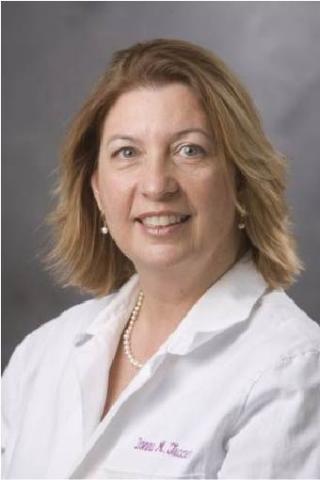It is 2 p.m. on a beautiful, sunny day. I have this afternoon off (yea!), and I’m overdue to leave the office; but thought it would be best to check for any last minute urgent messages. Instead, I am surprised to see a new death notification in my inbox. I take a startled deep breath as my eyes open in surprise. No, it couldn’t be—she was only 38-years-old. Even physicians can be blind-sided by the unfair and unexpected.
I have seen death come gently as a welcome friend. Other times I have seen death wrestle its victim, thrashing and twisting until, finally exhausted, the patient succumbs. This time, however, death came as a thief in the night.
Family physicians care for patients throughout their life cycle, and most often for many members within a family. This means we care for our patients on an ongoing basis for years and sometimes our entire career. Not surprisingly, family physicians feel strong bonds to their patients as well as their families. So what happens when it is the physician who is shaken by a sudden turn of events? Aren’t we the ones who are supposed to provide care and guide?
Over the years, it has always been the family doctor who “attended” to their patient throughout their lifecycle – including during their final stages of life. It has been my job to assist patients and their families as they navigate the health care system through out what is often a complicated process of dying. When illness advances, comfort and quality of life, rather than cure, become the focus. I assisted patients in managing their symptoms of disease or side effects of their treatment for that disease. I helped those patients set goals of care and ensured they had whatever devices or adaptions they needed as their functional status changed. I supported families, sometimes in person, oftentimes by phone. By doing these things, I provided a service to my patients and was honored to be part of this important time in their life.
As the years progressed, I was grateful to be able to call on the expertise of an entire hospice team when needed. Hospice provides compassionate care for people facing a life-limiting illness. In addition to providing medical care, they are experts in pain management as well as emotional and spiritual support for the patient and their loved ones. The movement gained momentum in the Unites States in 1979, (1) a decade after Elizabeth Kubler Ross published her landmark book On Death and Dying. (2) It was from her writings that I first considered how we conceptualize death and react to loss. Interestingly enough, it was not until the late 1990’s that a growing end-of-life movement focused national attention on quality of life and the expansion and acceptance of the hospice movement occurred. Following this was the emergence in 2006 of palliative care as a board certified sub-specialty in the US (3). Lessons learned from my patients, and this hospice team, have better enabled me to be a supportive presence and guide as patients leave this life.
What then happens when we encounter the unexpected?
How do I face this thief who came and stole something precious? How do I know what words to use as I reach out to a family I have known for years, now mourning the unexpected loss of a loved one? Certainly this qualifies as one of those difficult conversations in medicine where we as physicians must address the most sensitive medical topics.
I have to make this call and it must be now. I have a sense of urgency to connect with this family that I know so well. I wish to be honest in my communication, but acknowledge that anything I say will be inadequate for the circumstances.
I pick up the phone and dial. In the end, I said very little. Instead, I listened. It was in the listening that the healing came[CR1] .
1.. http://www.nhpco.org/history-hospice-care
2. On death and dying, Elisabeth Kubler-Ross, New York, Macmillan (1969)
3. http://endoflifestudies.academicblogs.co.uk/palliative-medicine-as-a-spe...
Donna Tuccero is associate program director of the Duke Family Medicine Residency Program. Email donna.tuccero@dm.duke.edu with questions.
Editor’s note: A member of the Duke Family Medicine Residency Program leadership team guest blogs every month.
